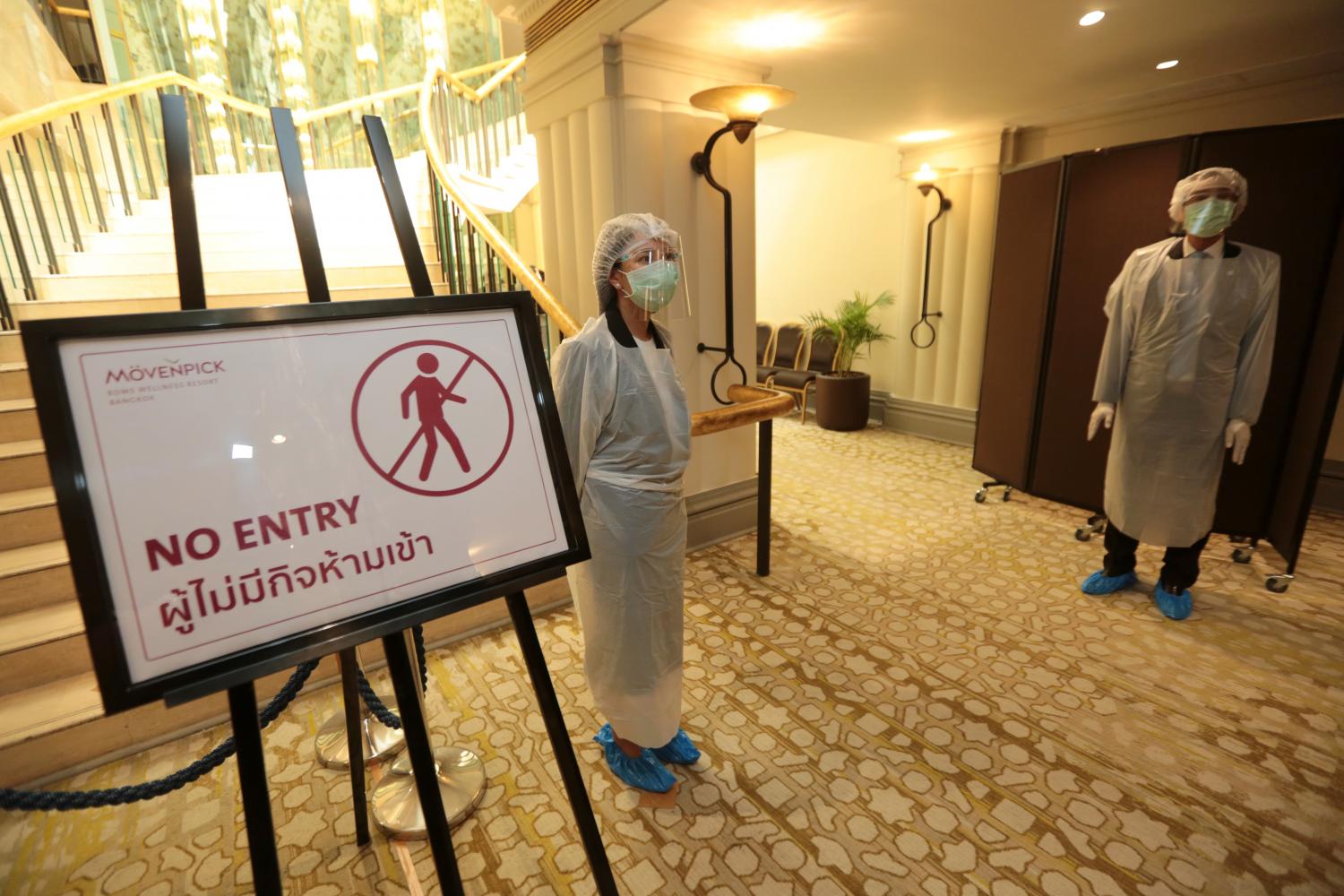
The tourism industry, which accounts for 12% of Thailand's GDP, is expected to take at least four years to recover to the pre-pandemic levels, says the Finance Ministry.
While several financial authorities and think tanks project Thailand's economy will fully recover over the next two years, the recovery of the domestic tourism sector is anticipated to take until 2024 to recoup 40 million foreign tourist arrivals, said Arkhom Termpittayapaisith, the finance minister.
Foreign tourists are forecast to number 8 million next year before rising to 16 million, 32 million and 40 million in 2022, 2023 and 2024, respectively, said Mr Arkhom.
If the pandemic can be controlled, the pace of the recovery in foreign tourist arrivals may be faster, he said.
Foreign tourist arrivals reached 6.7 million on a year-to-date basis as of Oct 30, a far cry from almost 40 million arrivals registered in 2019, which generated revenue worth almost 2 trillion baht, according to the Ministry of Tourism and Sports.
Thailand recorded no foreign tourist arrivals between April and September this year due to stringent measures to contain the outbreak. October's 1,201 foreign tourist arrivals were issued special tourist visas for long stays.
Thailand's GDP is expected to expand by 4-4.5% in 2021, assuming foreign tourist arrivals of 8 million and an extension of the cash subsidy co-payment scheme, according to the National Economic and Social Development Council.
Mr Arkhom said Thailand's economic structure needs to change and the new S-curve industry, which has been initiated by the government, will support the shift.
There are 10 S-curve industries, such as biotechnology and robotics, targeted for investment under a strategy to transform and digitise the economy.
As the Finance Ministry oversees taxation, the ministry will focus on designing a tax system to facilitate three main business sectors, namely digital technology, green business and health and wellness, said Mr Arkhom.
For the e-service tax, a draft law is being deliberated in a third hearing in parliament and this tax policy is expected to be implemented next year, he said.
The draft e-service tax, which applies value-added taxes to overseas electronic service providers, has passed the second committee hearing in the House of Representatives, according to the Revenue Department.
Once the draft law takes effect, there will be a six-month period for the Revenue Department to prepare tax collection.
Mr Arkhom said loose monetary policy is still needed to facilitate consumer spending, a crucial factor for economic recovery.
A financial environment conducive to economic recovery and private sector financing is needed, he said.
Fiscal stimulus and the monetary policy have to be compatible with one another to shore up economic conditions, said Mr Arkhom, adding monetary policy tightening during recovery will slow down improvements.

Meals are ready to be served to guests at Mövenpick Hotel BDMS Wellness Resort Bangkok, one of the alternative state quarantine facilities for inbound travellers. Chanat Katanyu

A closure order is seen posted on the door at the First Cafe on Khao San Road in Bangkok's Phra Nakhon district. Nutthawat Wicheanbut

The sun sets in the backdrop at Khao San Road in Bangkok's Phra Nakhon district without the usual atmosphere of bustling tourism. Pornprom Satrabhaya